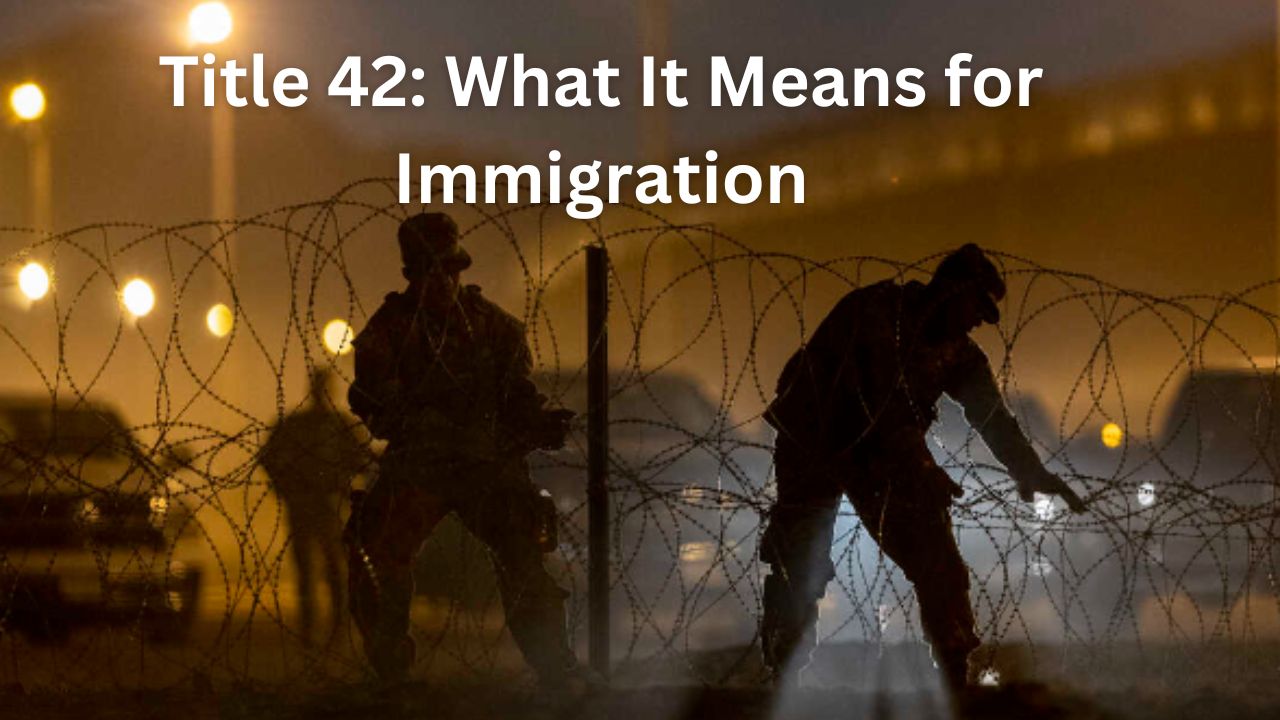If you have been following the news about immigration at the US-Mexico border, you may have heard of Title 42, a public health policy that was used to expel migrants during the COVID-19 pandemic. But what exactly is Title 42, why did it end, and how does it impact immigration now? Here are some answers to these questions.
Table of Contents
What is Title 42?
Title 42 is a section of the US code that gives the Centers for Disease Control and Prevention (CDC) the authority to prevent the spread of communicable diseases by temporarily prohibiting people or property from entering the country from foreign places where there is a serious danger of infection.
In March 2020, under the Trump administration, the CDC issued an order under Title 42 that allowed US Customs and Border Protection (CBP) agents to rapidly remove anyone entering the country without authorization, without giving them a chance to request asylum or other forms of protection. The order was based on the premise that migrants could pose a risk of spreading COVID-19 in crowded detention facilities or border communities.
The order was challenged by immigrant advocates and some public health experts, who argued that it violated US and international laws, deprived migrants of their right to seek asylum, and exposed them to dangers in Mexico or their home countries. However, the order remained in place throughout the Trump administration and most of the Biden administration, resulting in nearly 2.8 million expulsions of migrants at the border.
Why did Title 42 end?
Title 42 was set to expire on May 11, 2023, unless renewed by the CDC. The Biden administration had faced pressure from both sides of the political spectrum to either extend or terminate the order. On one hand, some Republicans and border states argued that ending Title 42 would lead to a surge of migrants and a public health crisis at the border. On the other hand, some Democrats and human rights groups urged Biden to fulfill his campaign promise of reversing Trump’s restrictive immigration policies and restoring access to asylum.
On May 6, 2023, the White House announced that it would not renew Title 42 and would instead return to Title 8, a section of the US code that governs immigration enforcement and procedures. The White House also said that it would create more legal pathways for migrants from Nicaragua, Cuba, and Haiti to apply for humanitarian relief from abroad, as these countries face political turmoil and natural disasters.
How does Title 42 affect immigration now?
The end of Title 42 means that migrants who are apprehended at the US-Mexico border will no longer be subject to rapid expulsions without due process. Instead, they will be processed under Title 8, which may involve detention, deportation, or release into the US with a notice to appear in immigration court.
However, this does not mean that all migrants will be able to enter or stay in the US. The Biden administration has warned that migrants who do not qualify for asylum or other forms of protection will face “more severe” consequences under Title 8, such as expedited removal (a fast-track deportation process) and a ban on reentry for at least five years. The administration has also reiterated that the border is not open and that most migrants will be returned to their countries of origin.
The end of Title 42 also poses operational and logistical challenges for CBP and other agencies involved in border management. The number of migrants encountered at the border has reached record levels in recent months, exceeding CBP’s capacity to process and shelter them. Many migrants have been waiting in makeshift camps near the border in anticipation of a change in policy, creating humanitarian concerns. The Biden administration has said that it is working with Mexico and other partners to address these issues and ensure an orderly and humane transition.
Conclusion
Title 42 was a controversial policy that allowed CBP agents to expel migrants at the border without offering them asylum or other protections during the COVID-19 pandemic. The policy ended on May 11, 2023, after nearly three years of implementation.
Read More; How Title 42’s End Will Change US Immigration Policy

